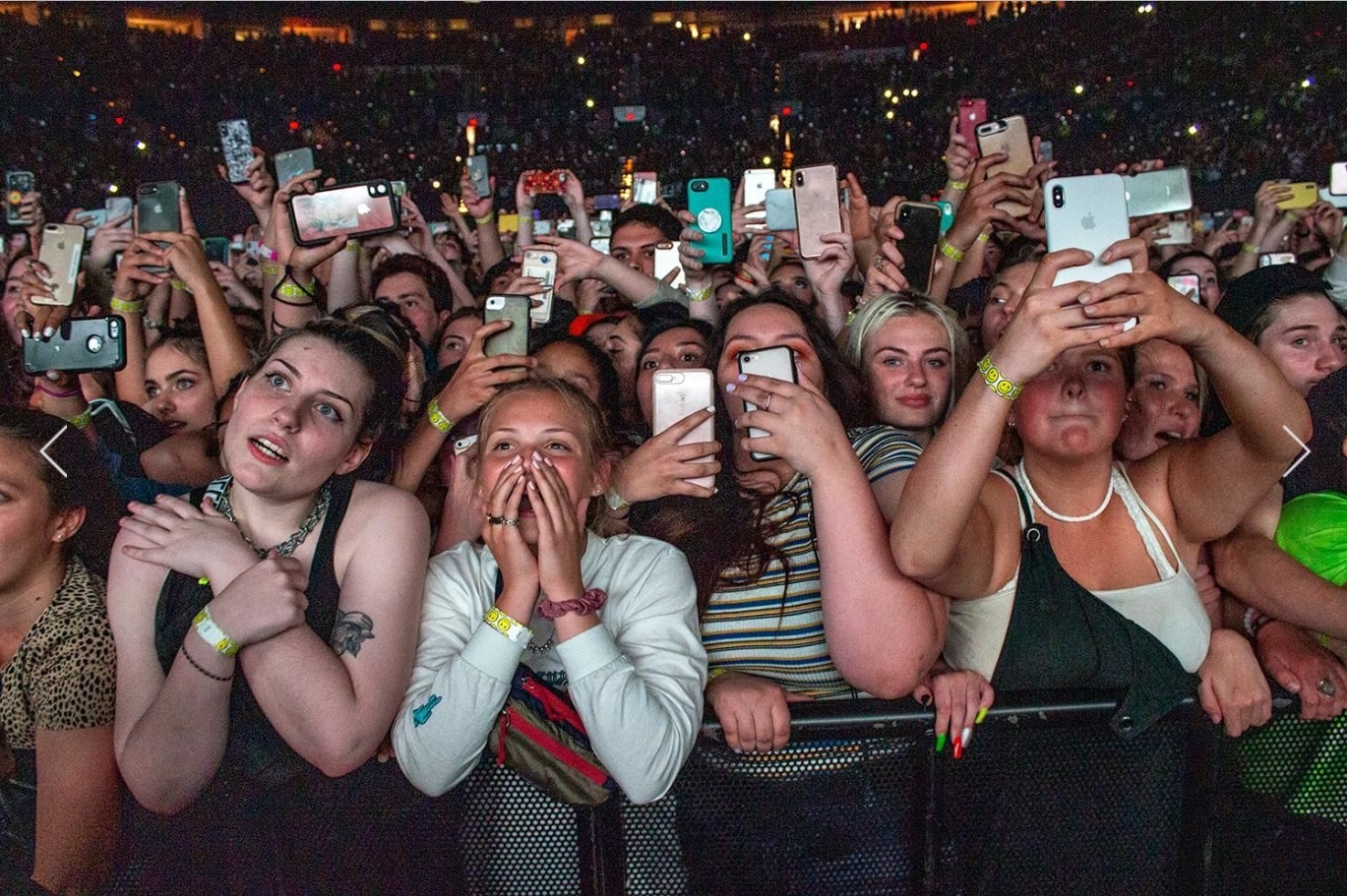Sarah Jewers is here to ask how our 21st century social media culture and the accessibility this creates between fans and artists can actually do more harm than good.
With the rise of social media over the last decade, and the intense scrutiny placed on every move celebrities make online, it’s never been easier for a musician to see what their fans think of their work, and in some cases make career moves based on these opinions. However, is that really any good for an artist and their creativity?
It could be argued that this affects an artist’s purpose behind creativity and the work they produce. If their fans really liked an album, and it sold really well, why take the risk and try a new sound or a new way of creating music when the original way worked so well? From a work perspective , earning money is essentially the goal and we all have lives to fund. On the other hand, this isn’t a very organic way to view music making. If they have a creative idea, but don’t want to follow for fear of losing commercial interest, this really hinders art for the purpose of expression.
A textbook example is our ginger haired friend who seems to be on every radio station and every cinema screen wherever you look. I do think Ed Sheeran is a talented musician, and I think his first album + is beautiful, and is a good exposition of his songwriting. I quite liked his second album, x. It was different from the first, and he took risks, but it paid off commercially. Nonetheless, for me his third album, ÷, fell flat because it felt like a people pleasing album and it didn’t have the same artistic content you would expect from someone with such a back catalogue of experience.
This discussion was prompted by the anger Rihanna’s fans have developed over the last few years at the singer for not bringing out new music. This lack of music has been due to the artist exploring other ventures, most namely her Fenty brand of cosmetics and ‘Savage x Fenty’ lingerie line. It has become almost a meme on twitter that Rihanna hasn’t released any solo music since Anti in January 2016, almost four years ago. Is this frustration going to do any good for Rihanna’s creativity? This mass wall of negativity towards her wish to pursue other paths could make music into more of a chore, rather than a way to express herself. At the end of the day, whilst her success and fame and wealth has been due to her music, does she actually owe people more? Why can’t they just listen to what’s already been released? Also, when creating what could be a musical masterpiece (there have been rumours that her comeback in music is imminent), four years is not actually a very long time in the grand scheme of things.
Fan culture can also become dangerous. We only have to look to the likes of One Direction, Beatlemania in the 1960s or K-Pop and Billie Eilish fandoms in 2019 to recognize how obsessive fan culture can become, to the point where constant security is needed as the artist danger. Taylor Swift has had problems with ‘fans’ trying to swim to her house or jumping up on stage during her concert and has had a recent legal case regarding a stalker. The constant anxiety artists are exposed to for reaching great heights in their artistic career is unjust and frankly a risk to their personal wellbeing.
The repercussions of fan culture isn’t limited to pop music, but has knock on effects on smaller artists in different genres? The ones who don’t fall quite into the musical mainstream, the political punk rock bands like IDLES, or the niche indie singer-songwriters like Matt Maltese. These artists still often have loyal followings but I think because they haven’t crossed over to international household name, or at least a national household name, their name is not a product yet. It may appear on merch, but it’s not yet a brand and they’re not seen as a production line for music; therefore, they can follow their creative intuitions without damaging their economic standing.
Extreme fan culture is dangerous, it’s as simple as that. When artists produce music to be shared it becomes a commodity that audiences go after – such is the intention of musicians to develop a following and a career. However, artists like Taylor Swift do have personal lives, families and a world outside of the spotlight that is consistently threatened by obsessive media followings and fans desensitised to the duality of an artists and their art. Platforms such as NPR Music’s ‘Tiny Desk Concert’ are doing wonders for ripping off those rose coloured glasses and showing us that this artists is just like you or me. As a society we need to take a step back and monitor how we, and those around us, have become disillusioned to the fact that there is a person behind the pop.
Sarah Jewers
[Header Image: Katu]

